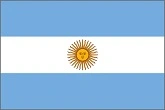ARG-HUMAN-CAPITAL-INDEX

Output
Compare
- Country
- Indicator
Graph
Table
?
Human capital—the knowledge, skills, and health that people accumulate over their lives—is a central driver of sustainable growth and poverty reduction. More human capital is associated with higher earnings for people, higher income for countries, and stronger cohesion in societies. Much of the hard-won human capital gains in many economies over the past decade is at risk of being eroded by the COVID-19 (coronavirus) pandemic. Urgent action is needed to protect these advances, particularly among the poor and vulnerable. Designing the needed interventions, targeting them to achieve the highest effectiveness, and navigating difficult trade-offs make investing in better measurement of human capital now more important than ever. The Human Capital Index (HCI) is an international metric that benchmarks the key components of human capital across economies. It was launched in 2018 as part of the Human Capital Project, a global effort to accelerate progress toward a world where all children can achieve their full potential. Measuring the human capital that children born today can expect to attain by their 18th birthdays, the HCI highlights how current health and education outcomes shape the productivity of the next generation of workers and underscores the importance of government and societal investments in human capital. The Human Capital Index 2020 Update: Human Capital in the Time of COVID-19 presents the first update of the HCI, using health and education data available as of March 2020. It documents new evidence on trends, examples of successes, and analytical work on the utilization of human capital. The new data—collected before the global onset of COVID-19—can act as a baseline to track its effects on health and education outcomes.
Basic data
Change
Download code



